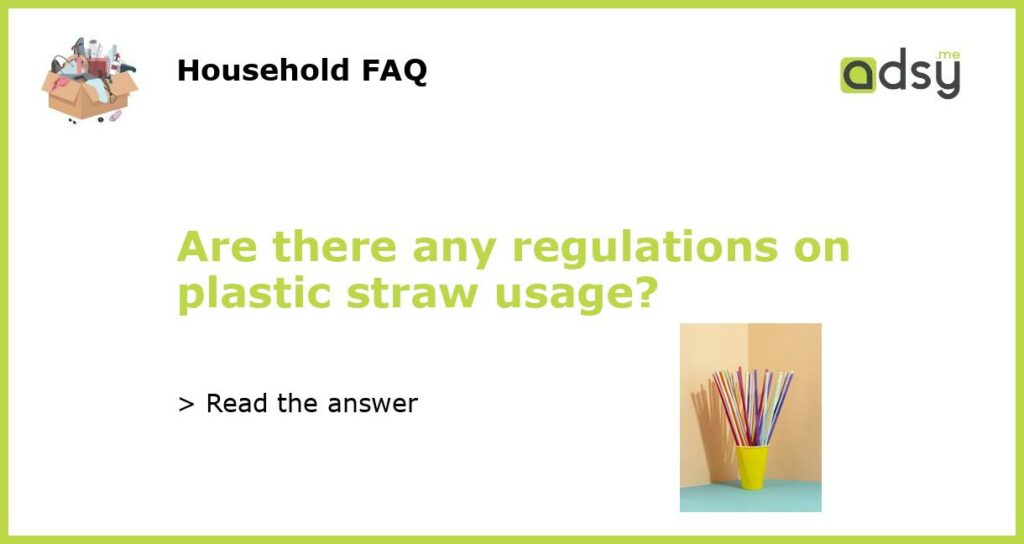Regulations on Plastic Straw Usage: What You Need to Know
If you’ve been paying attention to environmental news in recent years, you’ve probably heard about the growing concern over plastic straw usage. Plastic straws have been a convenient and common item in our daily lives, but their impact on the environment has raised alarm bells. As a result, there has been a push for regulations on plastic straw usage. In this article, we will explore the current state of regulations on plastic straw usage and what you need to know.
The Plastic Straw Problem: Environmental Impact and Awareness
Plastic straws might seem like a small and insignificant item, but their impact on the environment is substantial. According to research, an estimated 8.3 billion plastic straws pollute the world’s beaches, causing harm to marine life and contributing to plastic pollution in our oceans. The durability of plastic makes it persist in the environment for hundreds of years, causing long-lasting damage.
In recent years, there has been a growing awareness of the plastic straw problem. Environmental activists, organizations, and individuals have taken action to reduce plastic straw usage and promote more sustainable alternatives. This surge in awareness has led to increased pressure on lawmakers and businesses to address the issue.
Regulations on Plastic Straw Usage: Local and State Initiatives
While there is currently no nationwide regulation on plastic straw usage in the United States, many local and state initiatives have been implemented. Cities such as Seattle, San Francisco, and Miami Beach have banned or restricted single-use plastic straws in an effort to reduce plastic waste.
These local regulations often target businesses directly, requiring them to switch to alternative options like paper straws or only provide straws upon request. The goal is to encourage a reduction in plastic straw usage without completely eliminating their availability.
Corporate Actions: Voluntary Bans and Alternatives
Aside from local regulations, many businesses and corporations have taken their own initiatives to address plastic straw usage. Major players like Starbucks, Disney, and McDonald’s have announced voluntary bans on plastic straws in their establishments.
These voluntary bans often involve the introduction of alternative options, such as paper straws or reusable alternatives. By taking these steps, businesses not only contribute to reducing plastic waste but also respond to growing consumer demand for more sustainable practices.
International Efforts: Bans and Proposed Legislation
Regulations on plastic straw usage go beyond the United States. Internationally, several countries have implemented bans or proposed legislation to restrict or eliminate plastic straws. Examples include the European Union, which has plans to ban single-use plastics, and countries like Canada, Australia, and Taiwan, which have already implemented restrictions or complete bans on plastic straws.
These international efforts show a global commitment to addressing plastic waste and promoting greater sustainability. They also indicate a recognition of the urgency to act and find alternatives to single-use plastic items, including plastic straws.
The Future of Plastic Straw Usage
While there may not be a nationwide regulation on plastic straw usage in the United States at present, the issue continues to gain attention and momentum. The plastic straw problem has spurred local and state regulations, corporate initiatives, and international efforts aimed at reducing plastic waste and finding alternatives.
As individuals, we can contribute to this movement by being mindful of our straw usage and opting for reusable or biodegradable alternatives whenever possible. By collectively taking action, we can make a significant impact and create a more sustainable future for our planet.






